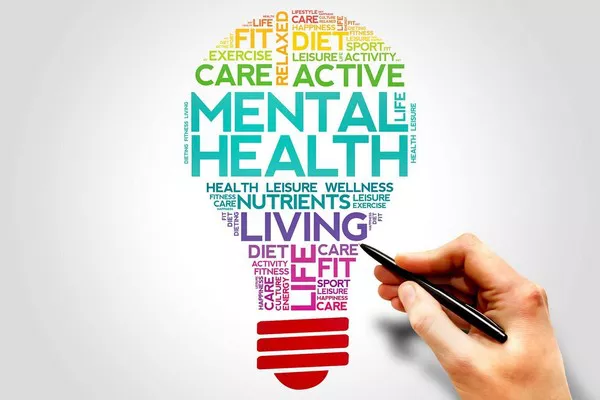Insomnia and its intricate relationship with mental disorders have long been the subject of scientific exploration. While the correlation between sleep difficulties and mental health issues is undeniable, the precise nature of this connection remains enigmatic.
The film “The Machinist,” released in 2004, provided a cinematic glimpse into the profound psychological repercussions of chronic insomnia. In the short term, sleep deprivation impairs memory, concentration, and emotional regulation. However, as sleeplessness persists, it can lead to more enduring psychological effects such as anxiety, depression, mania, and even psychosis. The character portrayed by Christian Bale in the movie experiences increasingly vivid visual hallucinations and paranoid delusions as his insomnia deepens, painting a vivid albeit fictional illustration of this phenomenon.
The interplay between insomnia and mental disorders is complex, and it defies a simplistic “chicken-or-egg” explanation. Insomnia and mental disorders are deeply interwoven in ways that remain beyond our complete comprehension.
Defining Insomnia: A Sleep Disorder or a Mental Condition?
Insomnia stands as the most prevalent sleep disorder, affecting an estimated 12-15% of Australian adults at any given time. Individuals grappling with insomnia frequently struggle to initiate or maintain sleep, or they may find themselves unable to return to sleep after awakening prematurely. This condition not only diminishes the quality of their sleep but also impairs their daytime functioning.
Many of the triggers for insomnia and factors that perpetuate its negative consequences are psychological or behavioral. These include psychosocial stressors (e.g., financial, work-related, or family issues), a heightened preoccupation with and worry about sleep (as the more one frets about sleep, the more elusive it becomes), and poor sleep habits, such as irregular sleep and wake times.
However, it is crucial to distinguish insomnia from mental disorders such as depression and anxiety. Insomnia is officially recognized as a sleep disorder but maintains close ties with an array of mental health conditions.
The Coexistence of Insomnia and Mental Disorders
Remarkably, approximately half of individuals diagnosed with insomnia also exhibit a concomitant mental disorder. The most commonly associated mental disorders with insomnia encompass depression, anxiety, bipolar disorder, post-traumatic stress disorder, and substance-related disorders.
The factors contributing to this striking overlap between insomnia and mental disorders are not yet fully understood. Several theories have been proposed, including a shared genetic predisposition for both conditions, a shared neurobiological response to sleep deprivation affecting cognitive, emotional, and reward systems, and the potential involvement of inflammation and immune system dysfunction in both insomnia and mental disorders.
The Conundrum of Causality
Adding to the complexity of this relationship, evidence suggests that insomnia may precede or follow the onset of a mental disorder, signifying a “bidirectional” connection. Causality remains elusive, and we can only affirm a strong association between the two.
This intricate link between insomnia and mental disorders has significant implications for diagnosis and treatment. Inadequately addressing insomnia can exacerbate the symptoms of a coexisting mental disorder, intensifying its severity and the risk of relapse. Cognitive Behavioral Therapy for Insomnia (CBTi), a type of talking therapy, aims to address the maladaptive thoughts, emotions, and behaviors contributing to insomnia. Importantly, successful CBTi treatment can also alleviate symptoms of a coexisting mental disorder, and vice versa, although its effectiveness varies with the specific mental disorder.
Bridging the Knowledge Gaps
Despite significant progress, numerous gaps in our understanding of the connection between insomnia and mental disorders persist. Last year, a panel of international experts outlined the crucial research needed to fill these knowledge voids.
Key recommendations include conducting long-term studies, commencing in childhood and adolescence, which employ wearable or smartphone technologies to objectively measure sleep and mental health. This approach seeks to identify issues early and address them promptly. Furthermore, expanding research to include diverse social and cultural backgrounds is essential, as sleep practices are often influenced by cultural norms. Lastly, researchers should explore the impact of daytime behaviors and environmental factors, such as dietary choices, disrupted sleep routines (e.g., shift work), and excessive technology use, on insomnia and mental health.
The outcomes of such research endeavors promise to revolutionize the accuracy of diagnosis and treatment for both insomnia and mental disorders. The overarching goal is to alleviate the burden of these co-occurring conditions, benefiting individuals and society at large.


